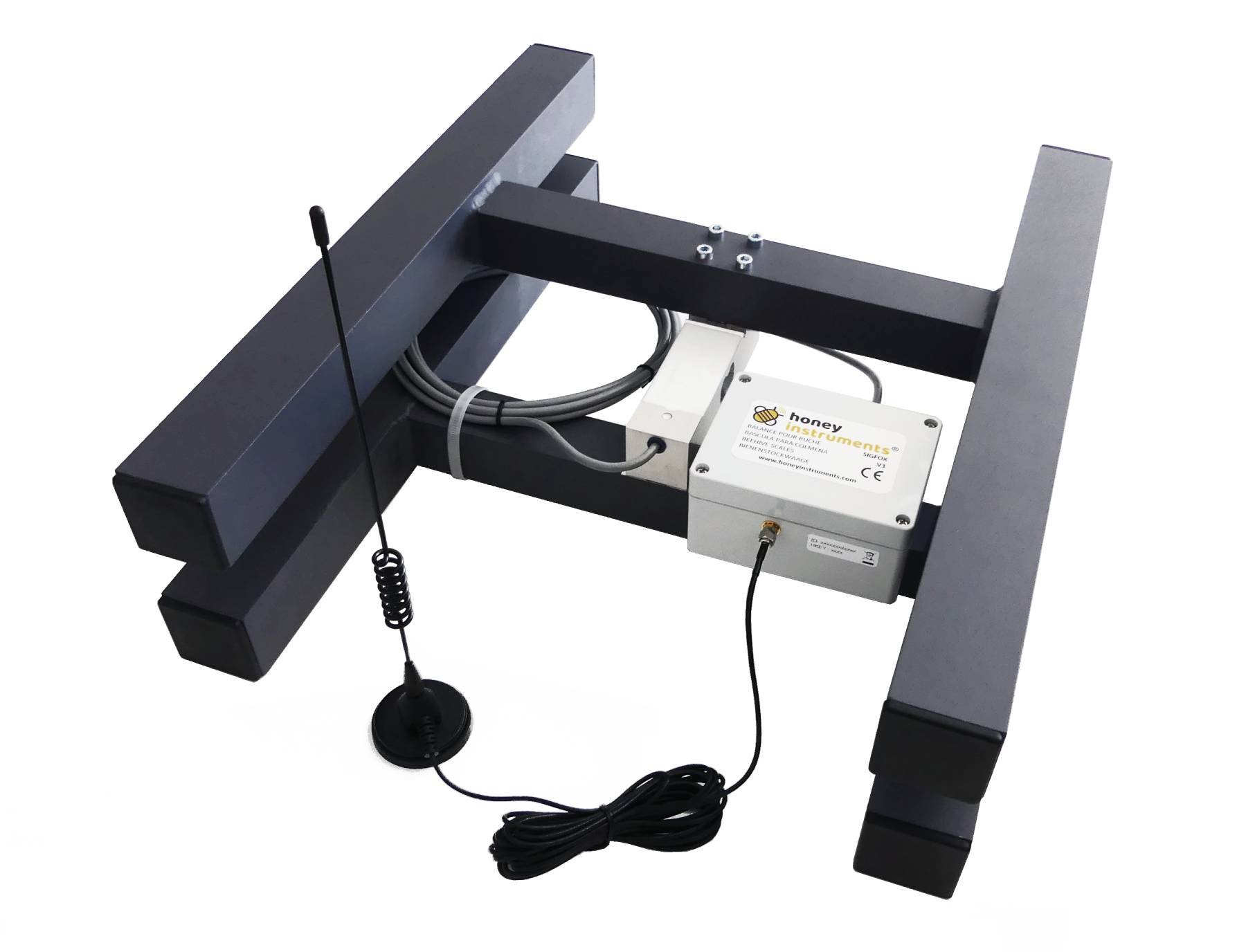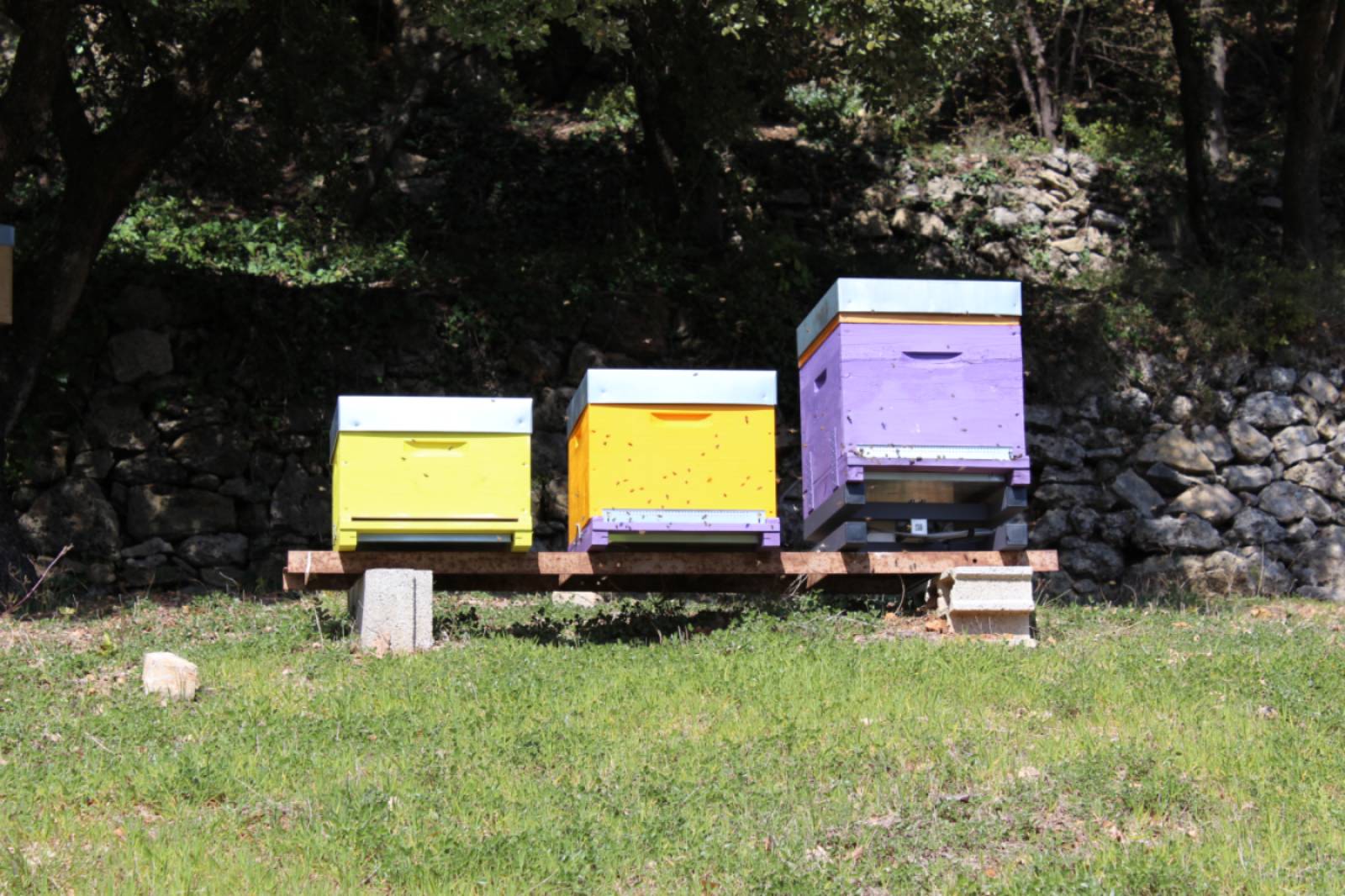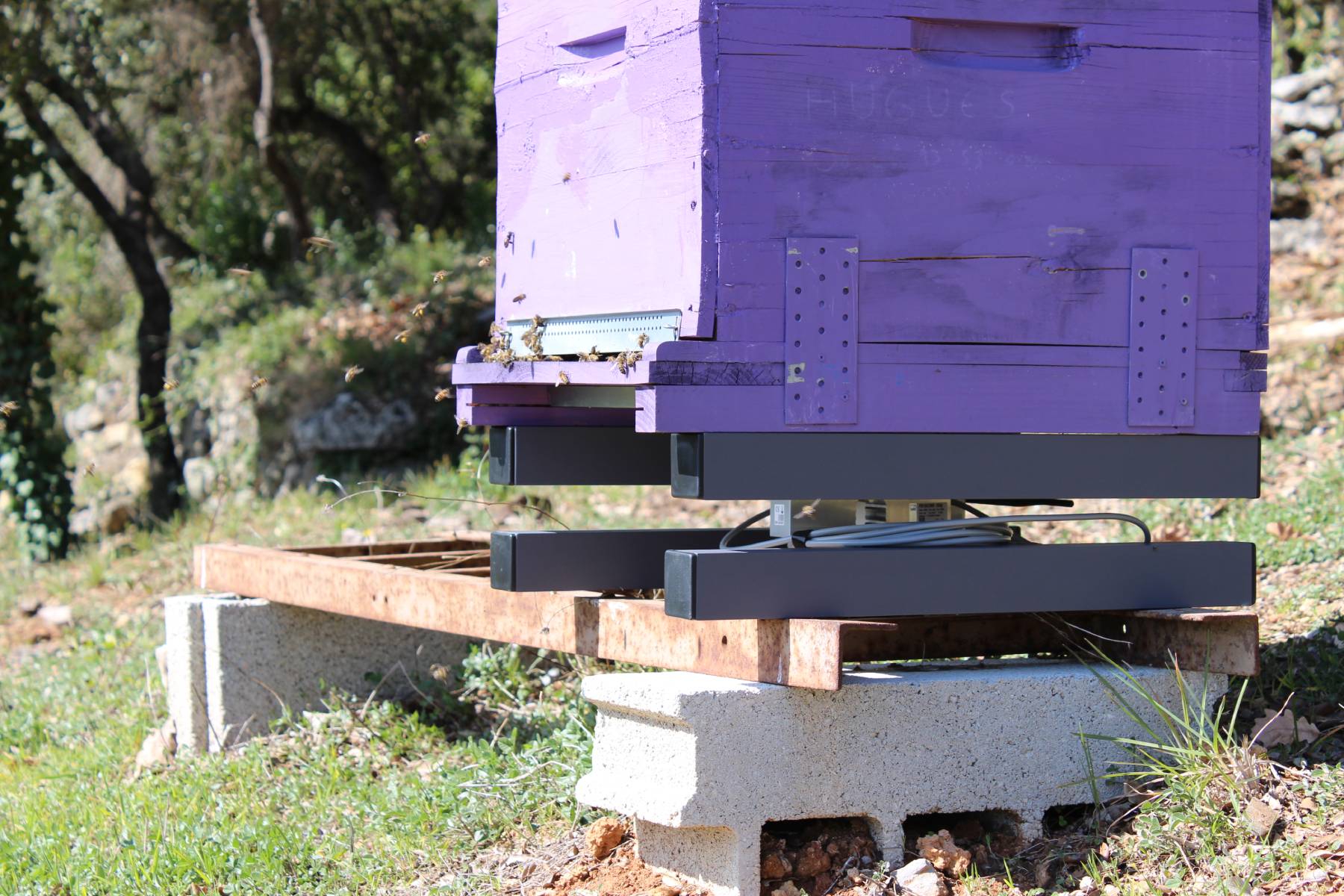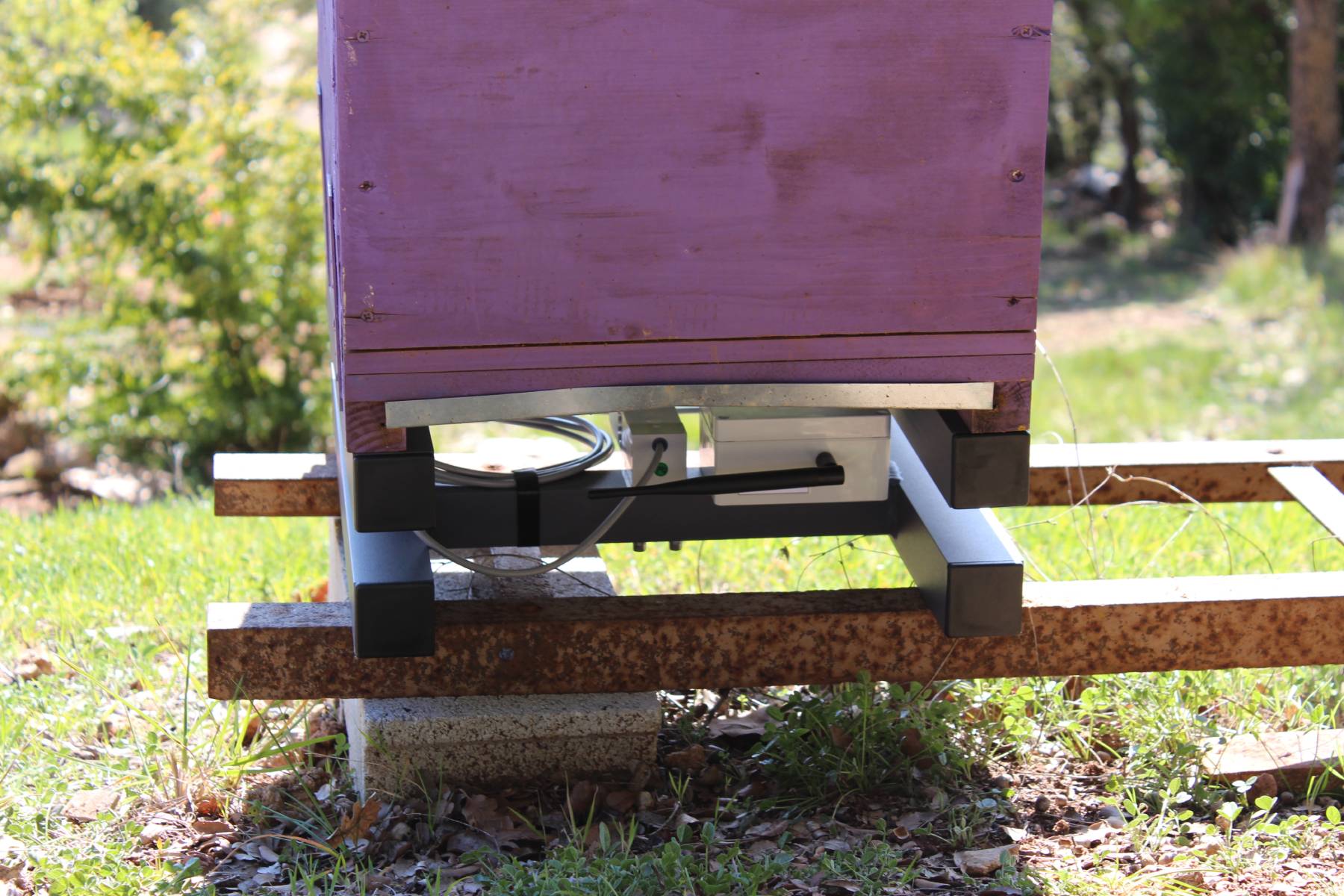Healthy bees are the joy of every beekeeper, but how do you know if everything is going well inside a hive? Should we intervene and risk being unnecessarily intrusive? Is the honey harvest compromised? These questions are answered by the HoneyInstruments connected hive scale. It gives hour by hour variations in the weight of the hive which are a perfect source of information that is easy to decipher, such as the number of bees leaving the hive or an accurate estimate of the winter honey reserve.
The load cell makes the buzzzz!
Challenge
HoneyInstruments needed to create a highly accurate scale, capable of delivering data in very isolated locations, energy self-sufficient and reliable. The final product had to be extremely robust, very easy to use, weatherproof and within a reasonable budget.
Solution
To evaluate the weight of the hive with precision, the PW10 load cell quickly became the choice, due to its characteristics well adapted to the project. It can measure a weight of up to 300 kg with an accuracy of 20 grams, it has minimal power consumption, and it is known to be totally reliable.
Results
Once digitised, the signals of the hive's weight variations must be transmitted, hourly weight and temperature information does not represent a large volume of data. Weighing results confirm day after day the evolution of the swarm and the normal course of these events.
The aspects for highly accurate scale
When Thierry De Vreese, director of HoneyInstruments, put the first elements of a connected hive scale on paper in 2015, he had to face a number of technical challenges: to create a highly accurate scale, capable of delivering data in sometimes very isolated locations, energy self-sufficient and absolutely reliable. In addition, the final product had to be extremely robust, very easy to use, weatherproof and within a reasonable budget. The connected scale is aimed at professionals who generally work with more than 150 beehives, most often in transhumance: the hives are transported to different areas depending on the flowering season and the type of flowers to produce a specific honey.
To evaluate the weight of the hive with precision, the PW10 load cell quickly became the obvious choice due to its characteristics well adapted to the project. It can measure a weight of up to 300 kg with an accuracy of 20 grams, it has minimal power consumption, and it is known to be totally reliable. The load cell operates outdoors and can easily withstand the harsh winters and hot summers that hives can be subjected to. With an accuracy of 20 grams it is possible to estimate the entry or exit of about 200 bees. A hive contains more than 50,000 bees.
The sensor is fixed in the heart of a metal structure known as a double H structure, which forms two support arms. The lower part is placed on the ground and connected to one side of the sensor, the upper part supports the hive and presses on the other end of the sensor. This structure creates a deformation proportional to the weight of the hive. A temperature sensor located in the housing completes the weight information. However, this is not the temperature inside the hive but the temperature outside the environment.
Do you have a similar need for your business or want to know more about HBK solutions? Get in touch with us!
Transmission of measured data
“I was already familiar with HBM's transducers because I have integrated them into other products," says Thierry De Vreese. "The discussions with the technical sales team quickly convinced me. Above all, I didn't want to have to do any after-sales service on my products. Since 2016, we have sold more than 250 connected scales in Europe and the sensor has largely kept its promises of reliability and robustness, as the scale must be able to withstand the handling of a farm machine during transhumance."
The sensor is powered by an electronic box which then performs several essential functions from a single 3.7-volt lithium battery. This battery is changed once a year and has been preferred to a more expensive and more fragile solar collector.
Once digitised, the signals of the hive's weight variations must be transmitted to the user. Beekeepers place their hives in places chosen for the quality of their flowers but often isolated from any communication network. GSM technology has been automatically excluded because it uses far too much energy. To solve the transmission issue, HoneyInstruments chose the Sigfox network. This network uses the ISM frequency band, which is particularly well suited to long-range, low-speed exchanges in rural areas.
This is because the hourly weight and temperature information does not represent a large volume of data. The range is about 40 km with a simple antenna of about thirty centimetres. The network of 2000 antennas cover more than 95% of the territory and is present in 70 countries. Once transmitted, the data is transferred to the Internet network and made available to the user on the Cloud HoneyInstruments platform.
The weighing results
The user simply accesses the data using the serial number of his hive. Beekeepers generally have a great deal of knowledge about what is happening in the hive at different times of the day and in different seasons. Weighing results confirm day after day the evolution of the swarm and the normal course of these events. The result is: fewer movements and an optimal honey harvest.
"One of the major advantages of the Sigfox network is that it does not use a SIM card and the subscription is a few euros per year. The subscription renewal rate is 99%, which is proof of customer satisfaction."
Let's leave it to Thierry De Vreese to conclude:
"I'm keeping in touch with Magali Clementi, the HBK technical sales engineer responsible for my sector, as I have other projects coming up. We use and integrate many sensors in IOT (Internet of Things) projects, and the beehive scale is a perfect example of this. In particular, we are working on the issue of theft prevention and the integration of other technologies and connectivity such as LoRa, LTE-M and NB-IOT".



